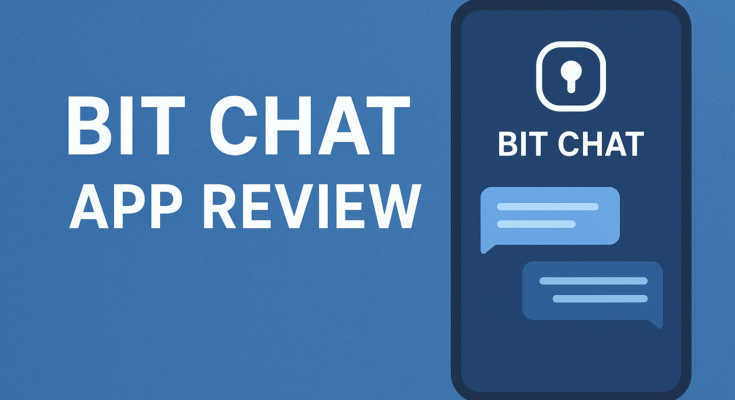Bit Chat App Review In July 2025, Jack Dorsey, co-founder of Twitter (now called X) and CEO of Block, Inc., announced BitChat, an encrypted messaging app that relies completely on Bluetooth Low Energy (BLE) mesh networking to operate in an offline state.
Core Innovations & Background

Offline Peer-to-Peer Communication:
BitChat enables users to send messages without relying on wi-fi or a mobile data connection, cellular coverage, or even sim cards. Instead, devices communicate directly to nearby peers, forming a self-healing mesh network—the messages can hop through relay nodes for up to 300+[m]!
Strong Decentralized Privacy:
The messages are encrypted with end-to-end encryption via Curve25519 key exchange and AES-GCM. Only the sender and receiving parties can read the messages. There are no user accounts, no centralized server, and no metadata stored.
Added Privacy Safeguards & Channel Control:
Password secure channels, IRC-like interface, and a “Panic Mode” that allows the user to triple-tap the logo erase all data in local memory.
Rapid Development with Advanced AI:
Dorsey explained that BitChat was built as a “weekend project” with contributions from Goose, Block’s AI coding assistant—a perfect example of the new frontier in “vibe coding.”
In Beta, But Demand Is High:
BitChat launched via Apple’s TestFlight beta program, and quickly reached the maximum capacity (10,000 users), indicating a high level of early interest was mustered. The app has an Android build also available, but additional optimizations and approvals are necessary before further distribution is permitted.

Why BitChat Matters
- Censorship Resistance: As BitChat does not need infrastructure, it could be crucial during periods of internet shutdown, protests, or in areas that are heavily censored. This would be similar to the use of FireChat and Bridgefy in Hong Kong.
- Privacy by Design: Because there are no clouds, no collecting data, and no accounts associated with BitChat, elements of anonymity are often missing on popular platforms.
- Emergency Communication: BitChat might facilitate communication in natural disasters or remote geographic locations with no access to connectivity where traditional services would not function.
Current Limitations & Considerations
- Need Nearby Users: Even in areas where BitChat was effective, it depended on a dense population of active BitChat users. In isolated areas, messages could fail in transmission.
- Early Stage: The app has not undergone a review or assessment through external security audits. One vulnerability led to user impersonation during an interception demonstrating the app’s early stage, as well as highlighting an important consideration for the developer user community.
- Limited Features: BitChat is lacking many of the conveniences of the popular apps such as syncing on media, cloud account backup, or real-time long-distance messaging. BitChat is more of a niché tool rather than a replacement for a full throw-replace platform slot such as those offered by WhatsApp or Signal.
Conclusion
BitChat is a significant step forward in decentralized, resilient communications. Developed in a weekend with the aid of AI, this app has made encrypted, infrastructure-free communication a reality—perfect for times when the internet is unavailable, unreliable, or unsafe. While BitChat is still a work in process, it showcases a world where connectivity is peer-to-peer, private, and in user control.



